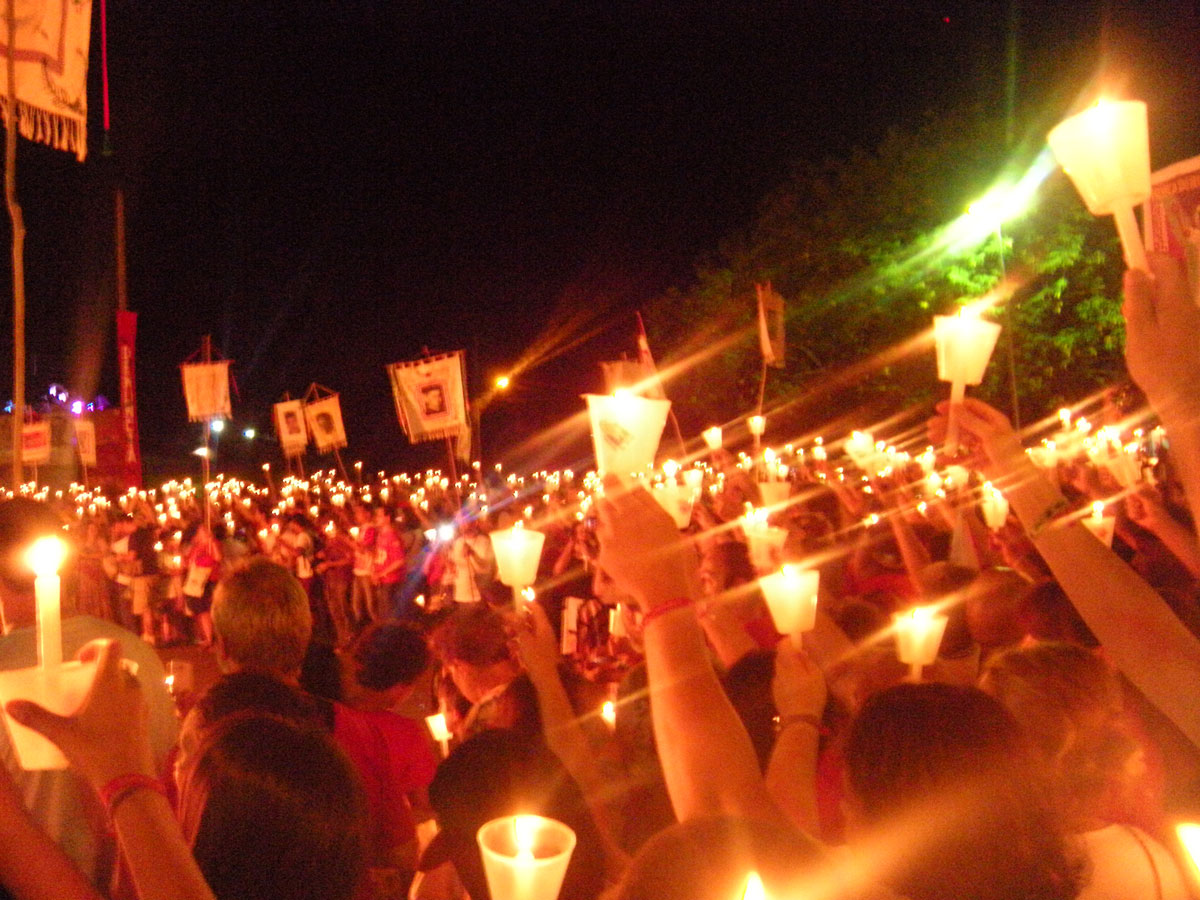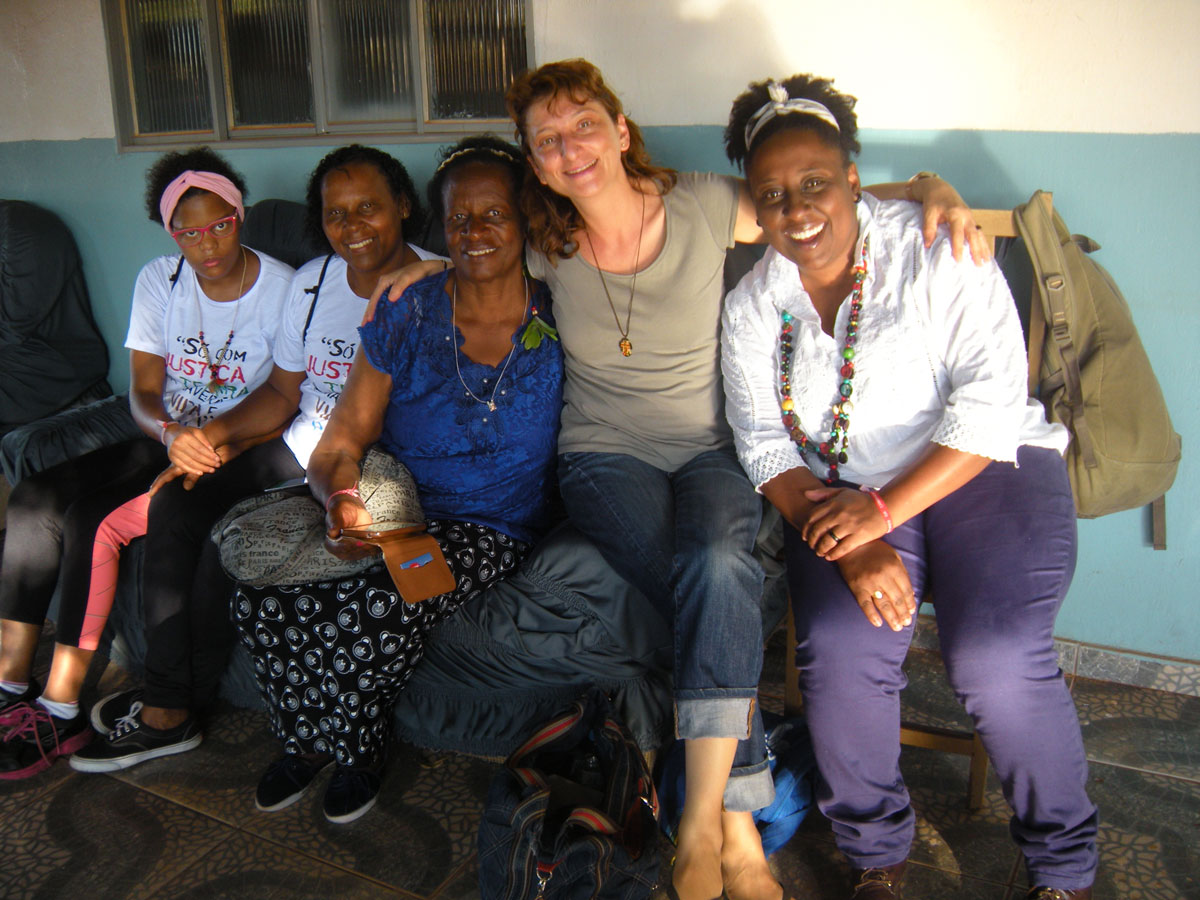It’s a soil that I wish would stick there as an everlasting present, sacred soil, rich in history and in memories.
Memory is a box full of images, emotions, facts, and words that we cannot allow to fade or be covered with dust. Memory allows me to understand my and the world’s present, to build my and the world’s future.
Memory nourishes my heart and gives it new energy.
This memory, the making of memories is part of the Pilgrimage of Martyrs that takes place every five years in Riberão Cascalheira, a small town in the interior of Mato Grosso, Brazil.
All those people who, in Latin America, have given their lives for the cause of justice are remembered: to defend land and life, to fight violence, dictatorship, the oppression by the powerful, and the arrogance of the political and economic powers.
It includes men, women, children, indigenous people, farmers, workers, lawyers, journalists, missionaries, militants of the Pastoral of the Land and of human rights, union members, people who fought fearlessly for the sake of justice, freedom, peace and truth.
The struggle for land, today as in the past, is still strong here in Brazil and it still a deadly menace. It kills those who dare denounce situations of violence and aggression in indigenous areas, in the Sem Terra settlements, and in the farming and fishing communities.
The large economic interests owned by multinational corporations and by private interests continue to destroy, threaten, and expropriate land and people. They are the martyrs of the past as well as of the present made of struggles still alive in the people of Latin America and of the entire world. Each situation of injustice, of violence of inequality is a cry to the entire world, a cry that cannot be silenced, domesticated, ignored… we make memories to live them in the present.
On this red and sacred soil we see the presence of a man, a prophet of hope who, despite his 88 years wrapped in a diseased and tired body, has chosen to take part in his perhaps last Pilgrimage: Dom Pedro Casaldaliga.
The life of Dom Pedro is a witness to the gospel in human flesh, witness more valuable than a theology book. His has been a life spent at the service of the “least” and for the “least,” an important voice in the struggle against usurping land owners and their cruelty. He has been threatened with death numerous times, both during the dictatorship and later. He never gave up and he never allowed himself to be intimidated.
He is a small great man of faith and courage.
On the occasion of his episcopal consecration as bishop of San Felix do Araguaina, Dom Pedro wore a farmer’s straw hat instead of a miter, a wooden staff of the indigenous Tapirapè instead of a pastoral staff and a ring made of Tucum wood rather than gold.
He always stood by the farmers and the indigenous people, defending them strenuously.
It was a source of great emotions for me to see him, even though he was in a wheelchair and his body was bent over and suffering, because his spirit still radiates energy and his person speaks more than a thousand words.
Great Dom Pedro, so great that he wanted to be present at this celebration! He did not want to miss it.
I traveled almost 30 hour by bus, as long as it takes to reach Mato Grosso from Minas Geras, napping in my seat and stopping at various service areas.
Many are the people from all over Brazil who took part in this Pilgrimage. I started off with a large group from Minas (two busloads), mostly members of social pastoral groups. It was great to be together and it was enriching to get to know one another. The sharing and the positive energy one could feel at every moment were also beautiful, the desire to be there and to continue to be part of history in the making.
Joy, sharing, struggle, prayer, brotherhood, solidarity, building, friendship, memory are key words of this Pilgrimage and of what we carry inside.
I love this land, I love the spirit of building up and of “struggle,” part of the Basic Communities that, albeit in a weaker form, still exist and live on. I believe that the theology of liberation is not something of the past, but still in existence. It’s here!
We find it in the stand of indigenous people, in the struggle for the defense of the land and of the environment, in the fight for human rights, in the defense of women and against the macho culture, in our prisons and among the inmates, in the fight against racism, prejudice and against a culture that divides rather than unite, in the plight of the migrants, in a Church that journeys with the people barefoot, able to shed its shoes and feel life on its bare skin.
Perhaps I am just romantic and nostalgic, but I am also realistic and unwilling to lose my enthusiasm, my courage and the will to believe always that a different world is possible (I am thinking of the anniversary of the G8 of Genoa in these days) and that we, and no one else, can build it with our choices, our work, our struggles, our witness, remaining faithful to the Love that moves all and builds all.
Lives for Life, Lives for the Kingdom.
Emma Chiolini, CLM





